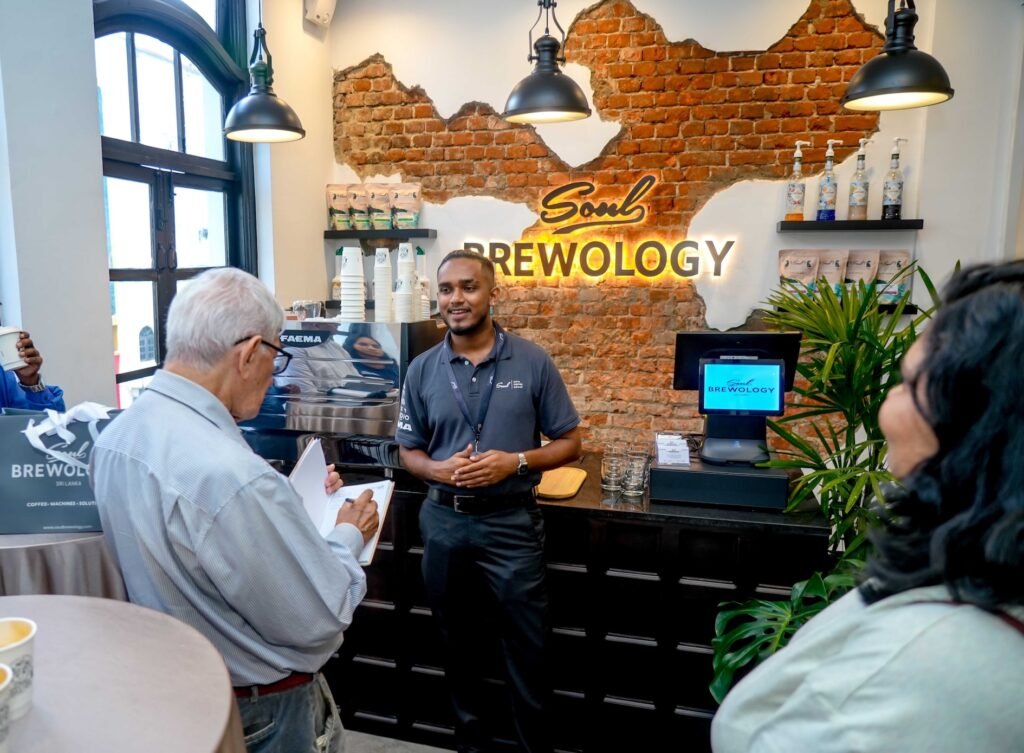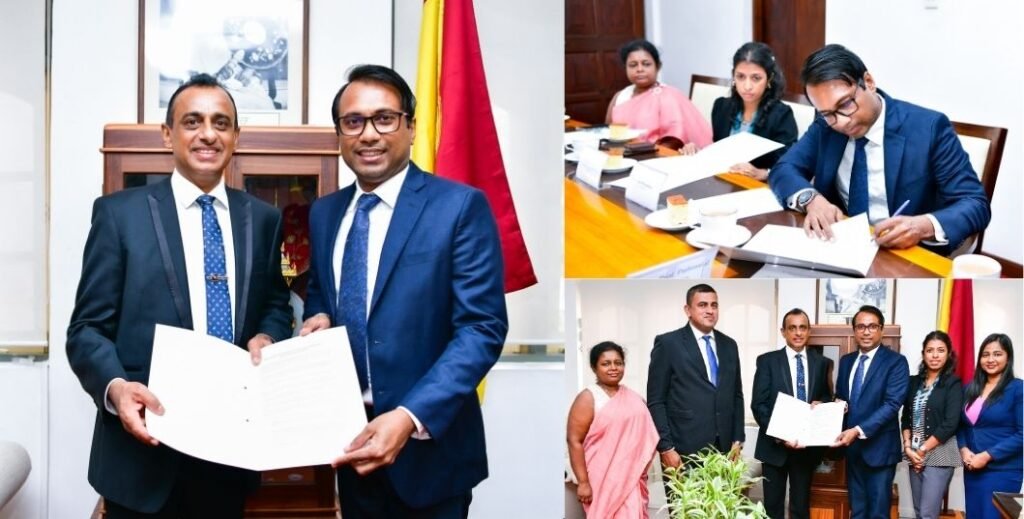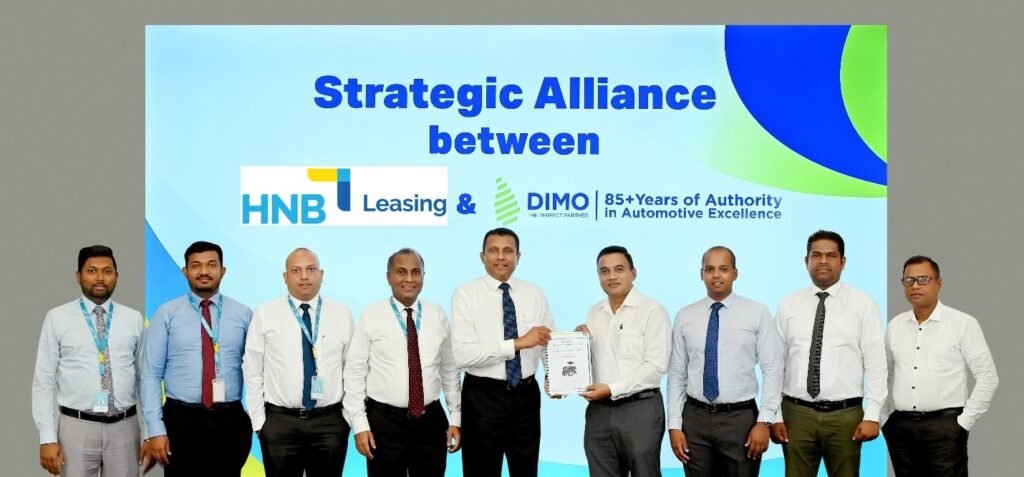The British Council convened a powerful gathering of education leaders, innovators, and policymakers for its inaugural Sri Lanka Education Symposium 2025 — a first of its kind in its inclusivity and multi-level engagement, and a milestone moment in Sri Lanka’s journey towards a more inclusive, equitable, and future-ready education system. Attendees heard from a distinguished line-up of speakers that included Hon. Prime Minister Dr. Harini Amarasuriya, who serves as Sri Lanka’s Minister of Education, Higher Education and Vocational Education.
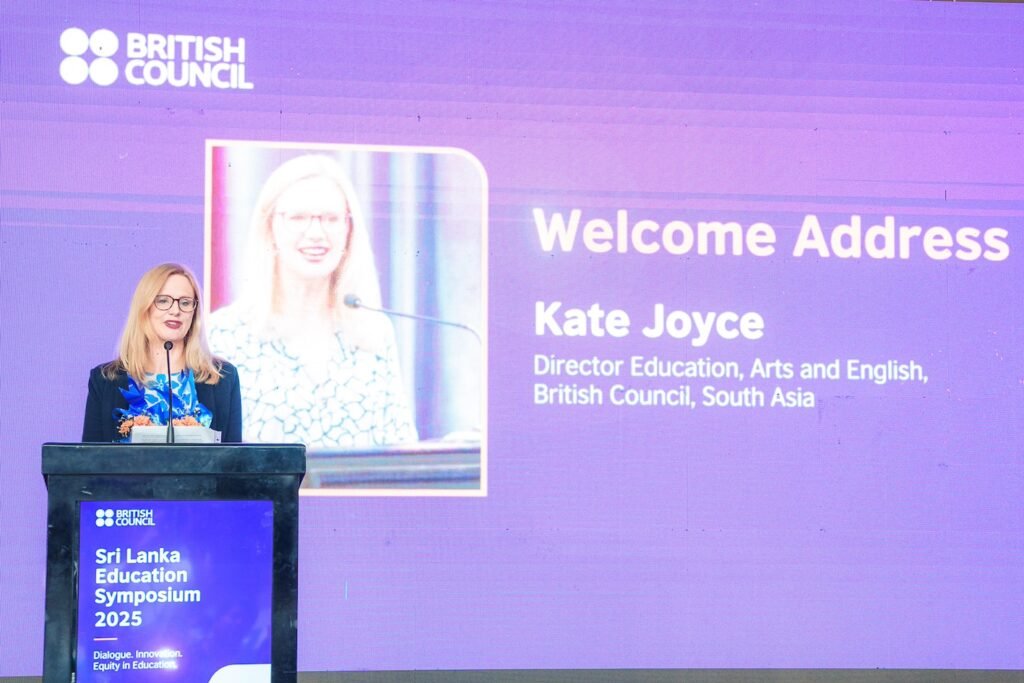
Centred on the theme “Collaboration, Inclusivity, Innovation and Equity in Education,” the symposium created a platform for strategic dialogue and idea sharing. Policymakers, educators, development partners, and thought leaders from across Sri Lanka and beyond explored how the system can evolve to deliver on the promise of inclusive and quality education for all. Key themes included inclusive and equitable English education, strengthening bilingual instruction, and scaling digital tools that meet the diverse needs of learners.
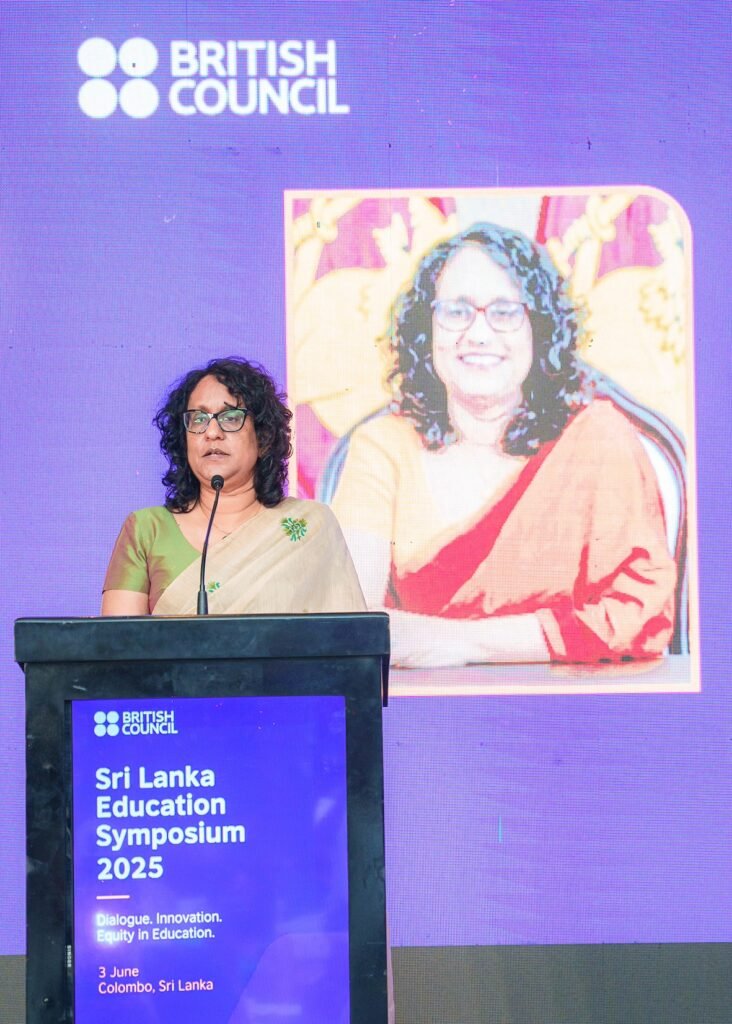
Opening remarks from Kate Joyce, Director Education, Arts and English, British Council, South Asia set the tone for a day grounded in shared purpose. In a special address, British High Commissioner Andrew Patrick reaffirmed the UK’s long-standing commitment to education partnerships. Orlando Edwards, British Council Sri Lanka’s Country Director, addressed participants via video message and emphasised the importance of co-creating solutions that put learners at the heart of reform.
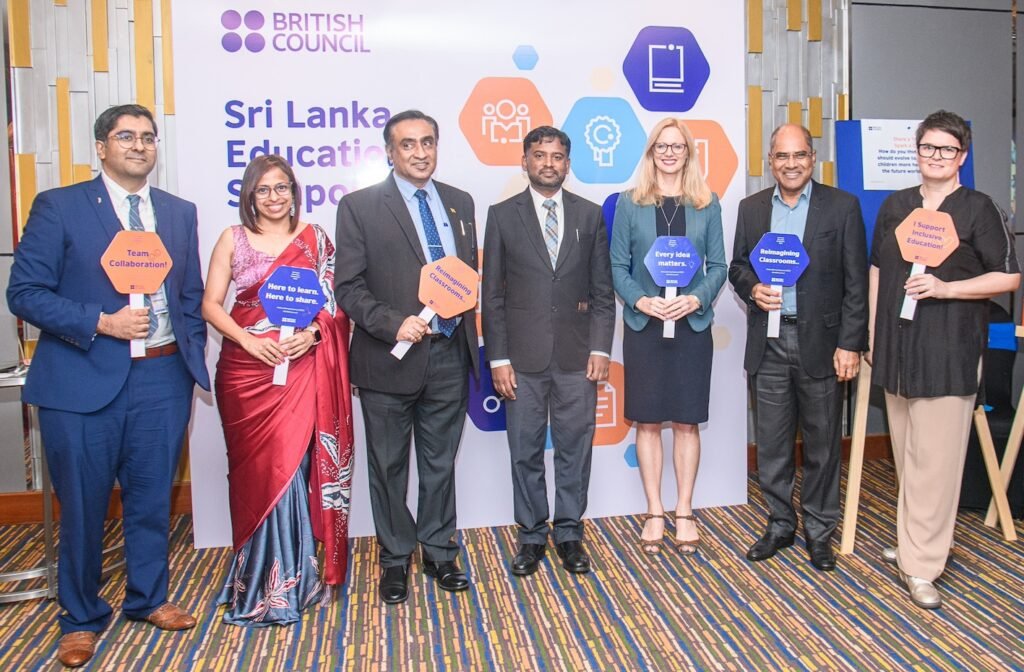
A high-level dialogue on inclusive education featuring Nalaka Kaluwewe, Secretary to the Ministry of Education, Higher Education and Vocational Education and Anju Moses, Head of English and School Education at the British Council Sri Lanka, set a reflective and impactful tone for the symposium.
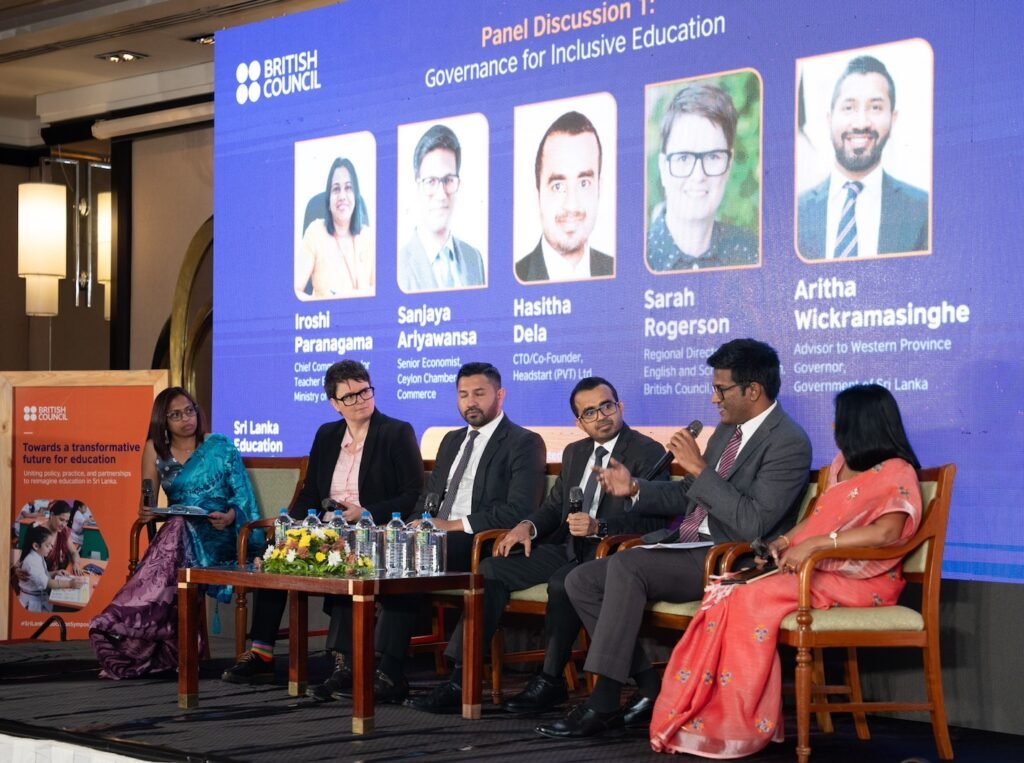
A key highlight of the symposium was the powerful keynote address by Hon. Prime Minister Dr. Harini Amarasuriya, who emphasised that English education should be an enabler of opportunity and not a marker of social divide. She outlined bold, practical reforms set for 2026 that aim to foster inclusive and communicative English instruction, modernise teacher training, expand digital access, and ensure equal learning opportunities across social and geographic lines. Her address called for collective commitment from government, development partners, civil society, and the private sector to build an equitable, future-ready education system.
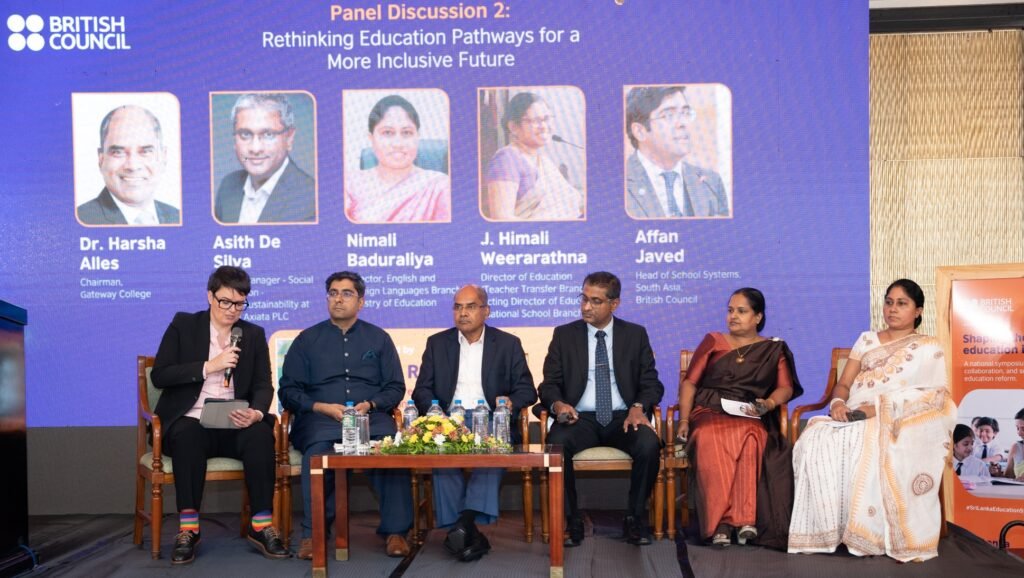
The two panel discussions featured in the symposium explored how national policy can translate into meaningful impact in classrooms, and how public-private partnerships can unlock innovation at scale.
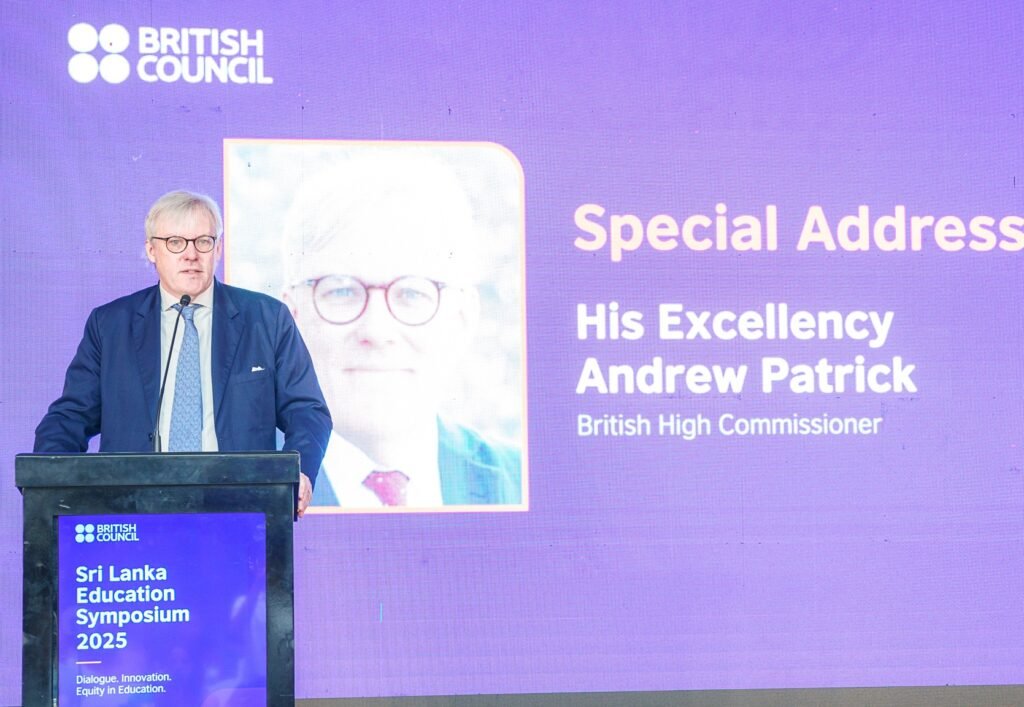
In the first panel, ‘Governance for Inclusive Education’, participants explored how policy and governance structures can support inclusive teaching, bridge equity gaps, and strengthen digital infrastructure. The second panel, ‘Rethinking Education Pathways’, spotlighted language inclusion, digital innovation, and flexible learning models to better prepare learners for a dynamic and uncertain future.
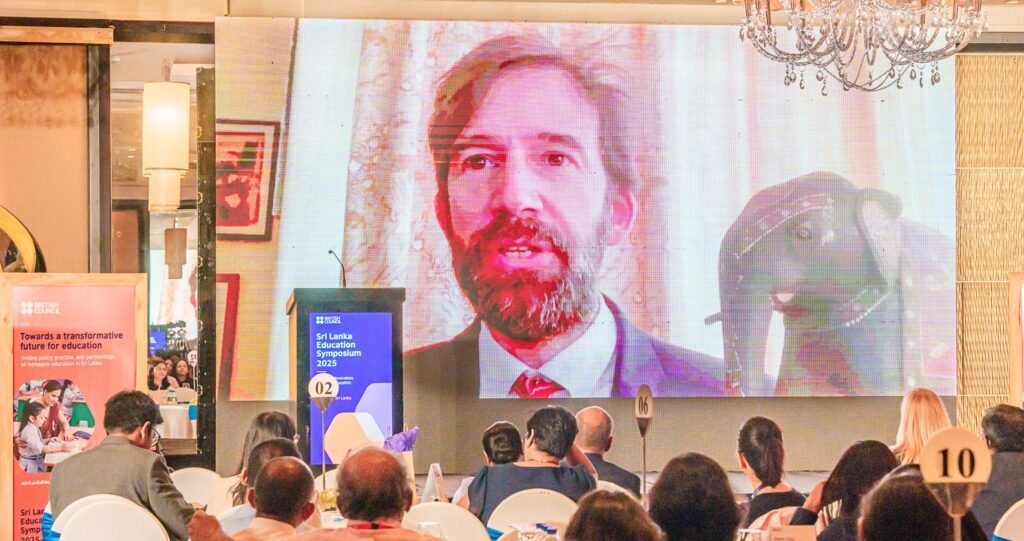
A powerful student address brought youth voices to the forefront, reminding participants that learners are agents of change. Thenuli Alpitiya (aged 13) from Rathnavali Balika M.V., Gampaha, shared how free and bilingual education—along with teachers who believed in her—opened doors and shaped her journey, highlighting the real impact of an inclusive and supportive education system.
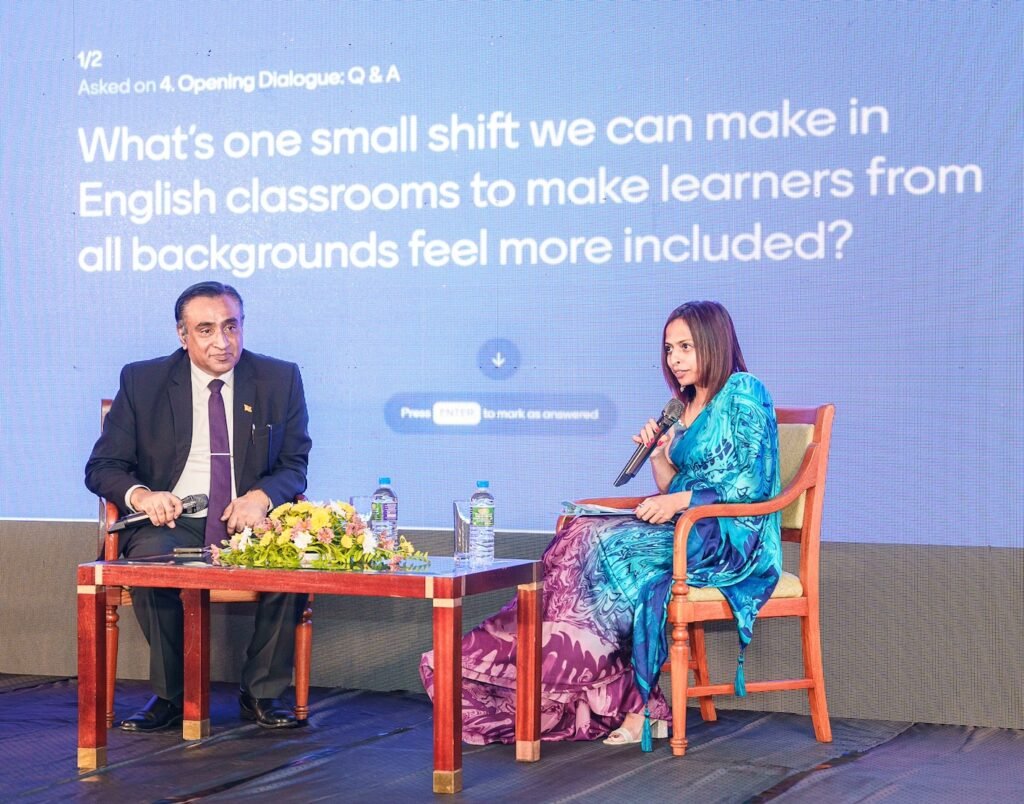
“This symposium has been an important moment for collective reflection and forward planning. It has brought together key voices across the education sector to strengthen our shared commitment to building an inclusive, future-ready education system, one that equips every learner with the foundational and transferable skills they need to thrive in a rapidly changing world. Events like this underscore the importance of working together in partnership across government, schools, and organisations to create lasting impact and ensure no learner is left behind,” said Nalaka Kaluwewe, Secretary to the Ministry of Education, Higher Education and Vocational Education.
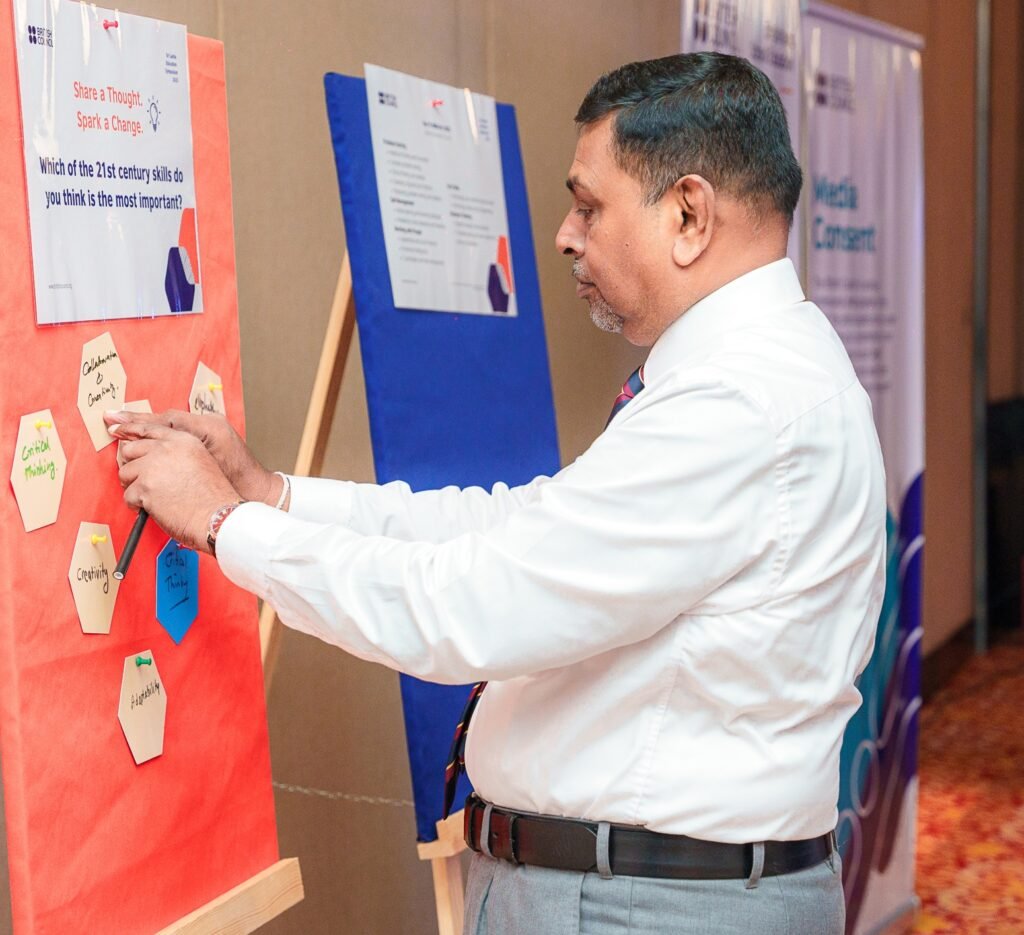
The British Council’s Sri Lanka Education Symposium was designed as a space for collaboration, shared learning and practical action. It aims to connect key stakeholders, spotlight innovative practices, and co-create a roadmap for lasting, meaningful reform. At its core is a vision for an education system that is inclusive, adaptable, and prepares every learner for a globalised world.
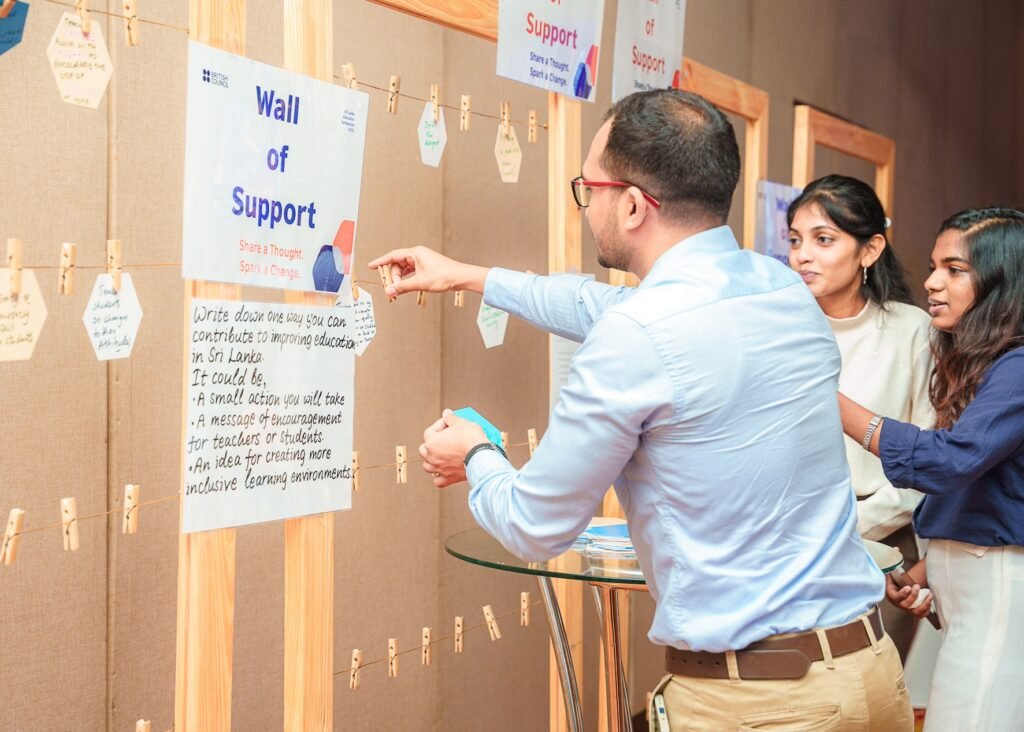
In her opening address, Kate Joyce said “We are proud to have convened this important symposium, which reflects the strength of collaboration between Sri Lanka and the UK in advancing education. The British Council remains committed to working closely with national stakeholders to support English language learning, innovation, and inclusive education through meaningful, long-term partnerships. It is through these collective efforts that we can drive sustainable change and impact.”
The symposium concluded with a collective call to action: to see inclusion not as an abstract ideal, but as the active operationalisation of diversity in every classroom and policy decision. From addressing implementation challenges such as teacher training, the digital divide, and language-based stigma to leveraging technology with purpose, discussions underscored the need for equity to be embedded at every level of reform. As Sri Lanka looks to the future, participants emphasised a shift toward nurturing critical 21st-century skills and reaffirmed that meaningful change must be driven by shared ownership across the system, with student voice at its heart.



